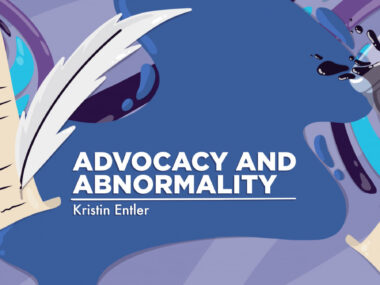Some Severe Asthma Patients Carry CFTR Variants: Genetic Study
Written by |

Some people with severe asthma, an inflammatory lung condition, carry variants of the CFTR gene that causes cystic fibrosis (CF), a genetic study found.
These findings support the genetic assessment of severe asthma patients with CF-related symptoms, the scientists recommended.
The study, “DNA Sequencing Analysis of Cystic Fibrosis Transmembrane Regulator Gene Identifies Cystic Fibrosis-Associated Variants in the Severe Asthma Research Program,” was published in Pediatric Pulmonology.
In CF, variants in both CFTR gene copies — each inherited from one parent — lead to a defective CFTR protein, which normally regulates the movement of ions and water in and out of cells. These variants lead to the buildup of abnormally thick mucus in various organs, including the lungs, intestines, pancreas, and liver.
In people with CF, there is a higher incidence of asthma — a long-term inflammatory disease of the airways marked by episodes of wheezing, coughing, chest tightness, and shortness of breath — than in the general population.
Studies suggest that some people with asthma carry variants in one of their CFTR gene copies, especially the F508del mutation, the most common CF-causing defect that’s found in about 90% of CF cases. Furthermore, animal models indicate CFTR mutations may be a risk factor for asthma.
Because of the availability of effective CF treatments targeting the defective CFTR protein, known as CFTR modulators, identifying CFTR variants in people with asthma may have important therapeutic implications.
However, studies investigating a link between CFTR variants and asthma are limited.
Researchers in the U.S. conducted a detailed genetic analysis of the CFTR gene in a group of 1,401 people with asthma and from different ethnic backgrounds.
DNA sequencing data were collected from those participating in the Severe Asthma Research Program (SARP), a comprehensive study of adults and children with severe asthma sponsored by the National Heart, Lung, and Blood Institute.
Among the 1,401 participants, 134 (9.5%) carried one potentially disease-causing CFTR variant. Carriers were more likely to be non-Hispanic whites (10.1%) over African Americans (5.2%). The most frequent variant was F508del, found in 30 participants, of whom 29 were non-Hispanic whites.
“In [non-Hispanic Whites] individuals from SARP, the [gene copy] frequency for F508del was [more than] 5-fold higher than that reported in European general populations,” the research team wrote.
Two or more potentially disease-causing CFTR variants were identified in 19 (1.4%) of those assessed, occurring more frequently in African Americans (2.8%) compared to non-Hispanic white participants (0.5%).
No relationship was found between having more CFTR variants, including F508del, and measures of lung function or exacerbations — a sudden worsening of symptoms requiring corticosteroid treatment, emergency department visits, or hospitalization.
“Although we hypothesized biologic plausibility, we found no evidence that CFTR variation influences asthma severity,” the researchers wrote.
In four non-Hispanic White females, all with reduced lung function, the team found three who carried one F508del variant and a different CFTR variant referred to as a variant of varying clinical consequences (VVCC), which causes CF in some people, but not others. The fourth individual had two VVCCs.
Without tests demonstrating defects in their CFTR protein, “these individuals would not meet criteria for a confirmed diagnosis of CF,” the scientists wrote.
“However, the clinical significance of these CFTR genotypes might relate to CF masquerading as asthma in individuals with CF-asthma overlap,” they added. “Further evaluation for CF would be warranted in such individuals.”
At least one of these non-Hispanic white asthma patients and all 12 African Americans with two potentially disease-causing CFTR variants would be classified as eligible for CFTR modulator therapy, the researchers noted.
Lastly, in severe asthma participants compared to the general population, the CF-causing variants identified in non-Hispanic whites and African Americans, especially F508del, had a markedly higher frequency than the second most common CFTR variant that occurs in a given population.
“We found potentially pathogenic [disease-causing] CFTR variants within a severe asthma-enriched [group],” the authors wrote. “These findings provide the rationale for CFTR sequencing and [characterizing] CF-related traits in individuals with severe asthma.”
CFTR gene sequencing data from larger asthma and general populations, which is currently ongoing, will be required to confirm these findings, the researchers noted.







